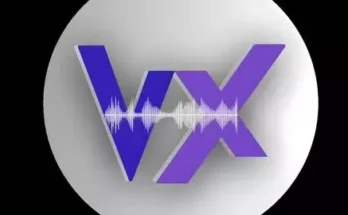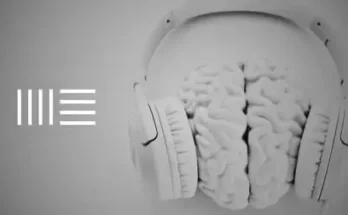Learn To Play Saxophone TUTORiAL
MP4 | Video: h264, 1280×720 | Audio: AAC, 44.1 KHz
Language: English | Size: 1.90 GB | Duration: 3h 55m
Master the art of Saxophone! Cover a year’s worth of private lessons in just a few hours, for a fraction of the cost.
What you’ll learn
Assemble and care for a saxophone
Form a correct, strong saxophone embouchure
Read and interpret music notation
Play dozens of popular melodies and songs
Perform multiple Major scales
Recognize and play nearly every note on the saxophone
Requirements
Working Alto-Saxophone
Saxophone Reeds
Neck Strap
Description
COURSE DESCRIPTION
Learning to play the saxophone is incredibly rewarding, but getting started is a challenge.
That’s where MusicProfessor can help you make the most of your practice. Start from opening your case for the first time and progress all the way to playing your first melodies. Master all of the techniques necessary to become a great saxophonist. On the way, you’ll also learn music theory and musicianship skills.
And save money while you study with us! Private lessons are expensive. Each MusicProfessor Saxophone course provides an entire year’s worth of lessons, for a fraction of the cost, and at your own convenience.
Join over 18,000 MusicProfessor students and begin your studies today!
COURSE FEATURES
75+ video lessonsDownloadable sheet musicAnimated fingering chartsSaxophone equipment recommendationsSaxophone-specific troubleshooting tips and adviceDozens of familiar melodies and songsTechnique-building exercisesMajor scales and scale exercisesMusic Theory basics
MusicProfessor’s curriculum is used in nearly 100 schools and school districts throughout the United States and by more than 18,000 students and music teachers throughout the world. Nowhere else can you find the level of detail and professional instruction of MusicProfessor’s curriculum.
Fulfill your musical destiny by enrolling today!
NOTABLE REVIEWS
“Good clear instruction. They way in which this course is presented is well thought out and wants to make you learn more and more. The pace is also good, gives you time to practice. Very clear instruction.”
-Enrico Marongiu
“A good start, from the very beginning. Having attended other in-person courses, I’d say this is the right way to approach the discovery and practice of Saxophone playing.”
-T. Lee
ABOUT THE INSTRUCTOR
Born and raised in the Chicago area, Los Angeles-based saxophonist-composer Dave Wilson graduated from the Indiana University Jacobs School of Music, studying under David Baker, Tom Walsh, and Pat Harbison. Following that, he lived in Macedonia for two years,working in the non-profit sector yet immersed in a world of Balkan music, performing with local folk, jazz, and rock musicians in the studio, in local clubs, and at festivals.
His collaborators have included Curt Smith (Tears for Fears), Dave Stewart (Eurhythmics), Engelbert Humperdinck, James Torm, composer Mateo Messina (Juno, Thank You for Smoking), producer Charlton Pettus, and French gypsy jazz artist Jessica Fichot.
His performance work has taken him to the stages of the Chicago World Music Festival, the Lotus Festival, the Guadalajara International Book Fair, the London Palladium, the Sydney Opera House, and the Araneta Coliseum, where Ali and Frazier met at the Thrilla in Manila. In 2010 at the Walt Disney Concert Hall in Los Angeles, he debuted Light Connected, a piece for clarinet, alto flute, cello, bass, cajon, dancer, and spoken word poet that he conceptualized and co-composed.
In addition to his work as a composer-musician, Dave just completed a Ph.D. in Ethnomusicology at UCLA’s Herb Alpert School of Music. His work there focused on the Macedonian folk tradition, and on how traditional and popular music reflect, articulate,and construct national identity, politics, class, and ethnic tensions in the context of a post-socialist capitalist society.
—
This course has been provided by MusicProfessor, an online music education company.
Overview
Section 1: Intro to Saxophone
Lecture 1 Intro
Lecture 2 Putting it Together
Lecture 3 Breathing
Lecture 4 Playing Position
Lecture 5 Taking it Apart
Section 2: Embouchure
Lecture 6 Intro
Lecture 7 Recap
Lecture 8 Embouchure
Lecture 9 Notes B+C
Lecture 10 Tonguing
Lecture 11 Tonguing and Tuning
Section 3: Reading Music
Lecture 12 Intro
Lecture 13 Recap
Lecture 14 Longtones
Lecture 15 Learning to Read Music
Lecture 16 Exercises 1
Lecture 17 Exercises 2
Section 4: Slurring and Tonguing
Lecture 18 Intro
Lecture 19 Recap
Lecture 20 Notes A+G
Lecture 21 Half Notes vs Whole Notes
Lecture 22 Slurring
Lecture 23 Slurring + Tonguing
Lecture 24 Articulations Combined
Lecture 25 Articulations Continued
Lecture 26 Half Rests
Lecture 27 Final Exercise
Section 5: Crossing the Break
Lecture 28 Intro
Lecture 29 Recap
Lecture 30 Notes D, E, F, F#, and G
Lecture 31 Quarter Notes
Lecture 32 Counting
Lecture 33 Crossing the Break
Lecture 34 Combined Rhythms, Notes, and Articulations
Lecture 35 Mary Had a Little Lamb
Lecture 36 Lightly Row
Lecture 37 London Bridge
Section 6: 3/4 Time
Lecture 38 Intro
Lecture 39 Recap
Lecture 40 Notes – Low C, D, E, F, and F#
Lecture 41 G Major Scale
Lecture 42 3/4 Time + Dotted Half Notes
Lecture 43 Exercise 1
Lecture 44 Exercise 2
Lecture 45 Exercise 3
Lecture 46 Exercise 4
Lecture 47 Hat Dance
Lecture 48 Birthday
Section 7: The Octave Key
Lecture 49 Intro
Lecture 50 Recap
Lecture 51 Notes – High A, B, and C + C Major Scale
Lecture 52 Quarter Rests
Lecture 53 Exercise 1
Lecture 54 Exercise 2
Lecture 55 Exercise 3
Lecture 56 Exercise 4
Lecture 57 Theme from ‘Symphony No. 1’
Section 8: Eighth Notes
Lecture 58 Intro
Lecture 59 Recap
Lecture 60 Notes Bb+B
Lecture 61 F Major Scale
Lecture 62 Eighth Notes
Lecture 63 Eighth Notes Continued
Lecture 64 Yankee Doodle
Lecture 65 Polly Wolly Doodle
Section 9: Articulation
Lecture 66 Intro
Lecture 67 Recap
Lecture 68 Notes G#+C#
Lecture 69 A Major Scale
Lecture 70 Legato
Lecture 71 Staccato
Lecture 72 Articulations Combined
Lecture 73 Eighth Rests
Lecture 74 Syncopation
Lecture 75 This Old Man
Lecture 76 Lightly Row
Section 10: Conclusion
Lecture 77 Final Lesson
Students looking to catch up,Students looking to get ahead,Adult Learners,Absolute Beginners,Music students who can’t access a private teacher




